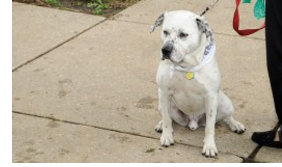IMPORTANT UPDATE: Chicago Kennel Cough Outbreak
 In recent weeks we have seen a large number of coughing dogs here in Chicago. Most of the affected dogs have a history of frequenting day care, boarding facilities, and dog parks. At this time I recommend avoiding these facilities to help protect your dog, even if he/she has been vaccinated for “canine cough.”
In recent weeks we have seen a large number of coughing dogs here in Chicago. Most of the affected dogs have a history of frequenting day care, boarding facilities, and dog parks. At this time I recommend avoiding these facilities to help protect your dog, even if he/she has been vaccinated for “canine cough.”
Why isn’t vaccination sufficient protection? Let me explain a little about canine cough.
“Canine cough” (also called “kennel cough”) is a broad term to describe infectious tracheobronchitis. This highly contagious condition results in inflammation of the trachea and bronchus. Many viruses and bacteria can result in canine cough. Currently the intra-nasal vaccine recommended for dogs here at the Medical District Veterinary Clinic covers the three most common causes of canine cough: Bordetella (bacteria), Parainfluenza (virus), and Adenovirus (virus).
However, early test results from patients in this outbreak point to an underlying culprit of canine influenza (flu). There is a vaccine for canine influenza on the market, but it has not been widely used or recommended because of the low risk of canine influenza.
Most cases start with a mild cough, which eventually progresses to a loud, honking cough. Some pets have decreased appetite, depression, and fever. We have seen a number of dogs develop a secondary pneumonia. If your pet is showing any of these signs, please have your pet seen.
Due to the outbreak I recommend avoiding any direct dog-to-dog contact and vaccinating dogs at high risk, such as those that attend day care, boarding, grooming, or dog parks and dogs that live in high rises. Although the vaccine does not 100% prevent infection, it should reduce the number of affected dogs. The canine influenza virus can survive 48 hours on hard surfaces and 24 hours on clothing, thus it is very important to be cautious in elevators, hallways, and dog relief stations.
Dogs need a booster two to four weeks after the initial vaccination. Dogs are not considered protected until 14 days after the second vaccine. The vaccination lasts one year and must be given annually thereafter. We do not recommend vaccinating dogs that have been infected until at least four weeks after the infection has cleared. Not all dogs may need the vaccine.
Please call the Medical District Veterinary Clinic at Illinois with any questions: 312-226-2588.
